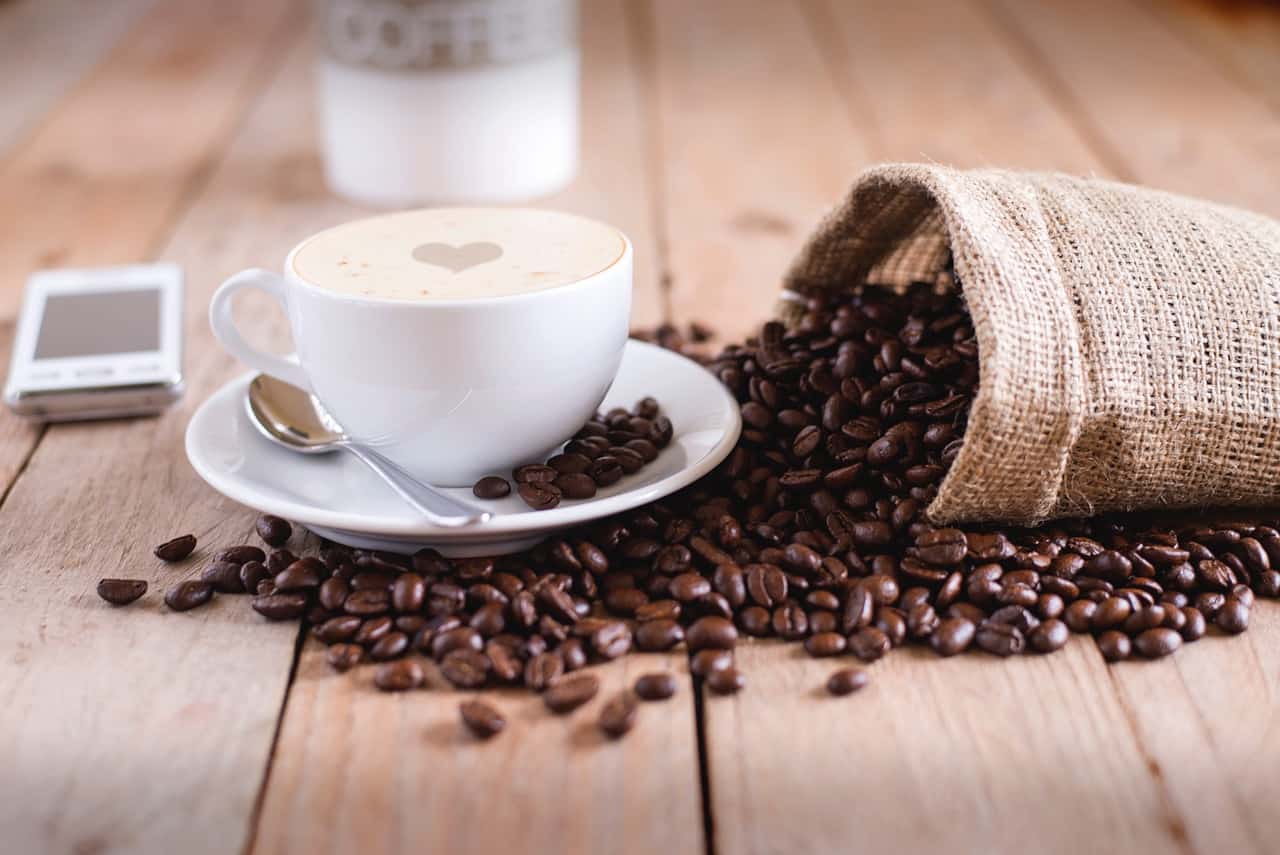Is there anything better than the smell of fresh coffee in the morning? A good cup of coffee can change your morning mood drastically and turn you from a groggy sleepyhead into an alert and active person ready to face the day.
But there’s always that one crucial element that makes or breaks this ritual – the coffee has to be GOOD. Like, really good. And trust me, I know it’s hard to make good coffee consistently, especially if we’re still in one of those sleepy moods.
This is the exact reason why I’ve researched and tested a variety of tips offered by leading coffee experts to see if they work or not, all in the hope of making your coffee-making experience a successful one.
How Many Scoops Of Coffee For 12 Cups?

My office has a coffee machine with a 12-cup capacity and I’ve found that the coffee quality wildly depends on who’s making it (I won’t name names). So now you see after many lackluster coffees, why I had the motivation to find out what is the perfect amount of coffee for 12 cups.
I’ve read endless blog posts on coffee and scoured sites for any bit of information I can find, and now I can confidently say I’ve mastered the art of brewing the perfect machine-full.
If you want to know how and why to make all the right choices when it comes to choosing equipment and brewing your coffee, then keep on reading! I’ll cover everything you need to know, and maybe even a bit more.
Factors That Affect the Coffee-to-water Ratio
Most of us have grown up using the first spoon we see to measure our coffee. Honestly, that’s how I had always done it, it’s how my parents measured their coffee and probably their parents before them.
Now, I’m not going to tell you that you can’t or shouldn’t do it, but it’s the most probable reason for your coffee tasting differently every day.
The number one thing that affects your coffee is the coffee-to-water ratio, and using a special coffee scoop helps you get it perfect every time.
I’ve found that using a coffee scooper or a tablespoon (measuring spoon, not a random one!) is the number one way to take your brew to the next level.
You should use one scoop or two tablespoons of coffee per 6 ounces (or 180 milliliters) of water. I used a marker to write the ratio on my first scooper so I’d see it every time, and now it’s burned into my brain forever.
So, for example, for 12 cups, you would use 12 scoops or 24 tablespoons of coffee. Yep, it’s really that simple. You won’t even need to think again, “How much coffee for 12 cups?” 12 equals 12. It couldn’t be easier.
You should take the same approach with water – you can trust the cup lines on the coffee machine if you want, but it’s always good to check if the lines are actually valid.
I once used a measuring cup to see if the machine’s 12 cups really were 12 cups and found the water line to be way higher than the water level I ended up using. Once again, my trusty marker came to the rescue, and now the coffeemaker proudly sports whole new water level lines.
Coffee Beans: Choosing the Right Foundation
Now that we have the measuring down, the next step is picking your fighter.
Ask yourself: What do you like? How do you want your coffee to taste?
If you’re a fan of light, fruity, and fresh coffee, you should look for coffees made from the Arabica variety of beans.
Arabica is the most-grown coffee bean type in the world, amounting to 60% of global coffee bean production, and it’s easy to see why. The light and cheery profile of Arabica is enjoyed by millions of coffee drinkers every day and most coffee blends use Arabica as the bulk of their coffee.
Now, if you prefer something strong to really kick you into gear in the morning, look for coffee that uses Robusto beans as the main component.
Naturally more caffeinated, the Robusto variety is a heavy-hitter, burnt and rugged, chocolatey and intense. Since it’s incredibly overpowering, it’s commonly mixed with Arabica to mellow it out.
Grinding Matters: Preparing Your Beans
I understand why it’s easier to buy pre-ground coffee than grind your own beans. However, freshly ground beans make all the difference – and the smell is unbeatable!
Although, when making large quantities at a time, considering how much coffee is needed for 12 cups, it’s definitely easier to use pre-ground coffee, especially if you’re at work.
If using a coffee maker you should choose a medium-coarse grind, which makes coffee look like rough sand. This leaves the coffee particles perfectly sized to extract all the dark goodness a bean can offer you.
When using a French press, opt for a coarser grind to avoid ground coffee coming through the press screen. For espresso, a fine, table salt-like grind is your best bet.
If you wonder why you can’t just use the same grind for all purposes, do think about how long it takes to brew a French press coffee compared to how quickly an espresso is ready to drink.
Using finely ground coffee in a French press would give you over-extracted and bitter, empty-feeling coffee. Conversely, using a coarse grind in an espresso machine would give you a sour, acidic, under-extracted coffee. Neither of those are what us coffee drinkers want.
How to Measure Coffee for 12 Cups
If you have pre-ground coffee and own a scooper then don’t worry, you’re in the clear. Use your coffee scooper to measure 12 (non-heaping) scoops of coffee, which should give you 12 cups of perfect, delicious coffee.
To be fair, if you’re making such a large volume of coffee frequently, you should look into buying a larger scooper to make your life easier and your coffee quicker.
The Best Way to Brew Coffee for 12 Cups
When making yourself a lone cup of coffee to enjoy, there are many methods to choose from, ranging from the AeroPress to an Espresso maker.
Large volumes are a whole different story, and here it’s easier to stick to a classic coffee maker or a French press. Both methods allow you to brew a large volume of coffee at a time without fiddling with pods or changing the filters of your AeroPress. Just put in the required amount of coffee for 12 cups and go about your merry business until the coffee is done, no hassle.
How to Choose Coffee Beans for 12 Cups
I have sampled an incredible number of varieties of coffee beans, both pre-ground and grinding them myself. Over the years, I’ve come to realize what I like to taste in a coffee and what I don‘t. This is why my top recommendation is – experiment!
If you like strong and bitter coffee, grab a few Robusta-heavy blends and try them out. If you’re a fan of easy-to-drink, light, and caramelly coffee, check out what Arabica Grinds can offer you. If you’re unsure of what you like or would like, head to a specialized coffee shop and ask for some sample-sized packs of different varieties.
You can also buy coffee samples online, but be sure to do your research beforehand, you don’t want to end up with a bag full of coffee you don’t like.
Frequently Asked Questions:
How much coffee should I use for 12 cups if I prefer a strong brew?
If you prefer a strong brew, use a Robusta-heavy coffee variety and a coarse grind. Use one scoop or two tablespoons per cup of coffee for optimal results, or experiment with your scoop size.
Can I use pre-ground coffee for a 12-cup batch?
Absolutely! Pre-ground is easy to use and can have a more uniform grain size compared to home-ground coffee. Plus, grinding all the coffee you would need for 12 cups would take multiple rounds on your grinder – if you have free time, feel free to do that. For a quick brew, pre-ground is unbeatable.
What is the best water temperature for brewing 12 cups of coffee?
Leading coffee-brewing experts quote 195 to 205℉ or 90 to 96℃ for brewing your coffee since boiling water can burn it, making it taste too bitter. If your water is any cooler than that, caffeine and coffee flavor won’t be properly extracted.
Can I grind coffee beans ahead of time?
Yes, you can. Store your freshly ground coffee in an airtight container and you’ll be good to go the next time you plan to brew a cup!
How long will the brewed coffee stay fresh?
If you haven’t added any milk or creamer to it, your coffee can be refrigerated for multiple days in a closed container. This is the perfect way to store your extra brew on hot summer days. At room temperature, you shouldn’t keep your coffee out for longer than a few hours at a time.
Final Words
Becoming a coffee-brewing wizard is no easy task, it takes months and years of research and experimenting to master the craft.
If you read these tips on how to brew coffee the right way you’ll soon become the coffee guru of your office, teaching others how to do it exactly like you. I wish you all the best on your brewing adventures!

